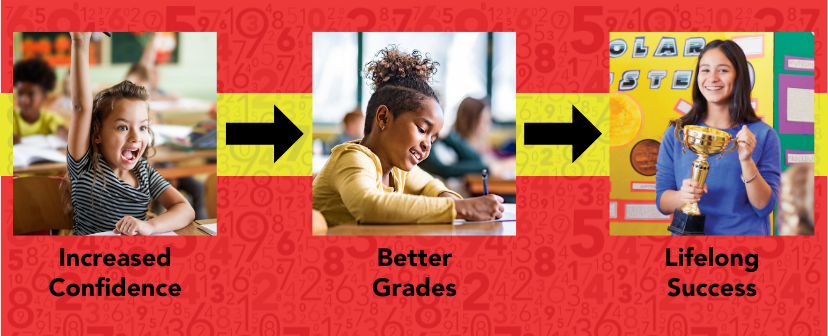Step 1: Praise Their Efforts
Rather than praising your child based on their abilities, or “smartness,” make sure to praise your child based on their efforts and strategies. Studies show that praising a child’s efforts can encourage them to focus on learning and promote a growth mindset.
Do This: Next time you check your child’s homework, offer praise using phrases such as “great job, you must have worked hard at these problems,” or, “I love how you tried different ways to get this answer.”
Step 2: Use Math-y Words (in a positive way!)
The words we use everyday are the gateway to making math accessible to children, even from a young age. If you avoid math-y words or only use them when you’re lamenting your own mathematical challenges, you may teach your child that these are words (and concepts) to be avoided.
Do This: Learn new ways to talk about math, and then check out Table Talk Math’s newsletter for icebreakers and other ways to naturally introduce these concepts at the dinner table.
Step 3: Set Math Goals
Setting achievable goals is important when it comes to boosting your child’s confidence in any subject, but especially math. Take some time before school starts to discuss the goals that you have for your child, and that they have for themself. Set daily, weekly, and monthly goals and make sure you have a plan in place for how to measure improvement. Once your child reaches these goals, celebrate! Be sure to remind them that it was their hard work that helped them achieve these milestones.
Do This: Sign your child up for a free Math Skills Assessment at Mathnasium. This will give you an in-depth understanding of where your child is currently on their math journey, and what steps they’ll need to take to achieve the goals you’ve set together.
Mathnasium helps children build confidence in their ability to solve even the most challenging of math problems. When you commit your family to the Mathnasium Method, you’re ensuring your child walks into class ready to master any topic.
Commit to Confidence this School Year!
Get started today by scheduling your child’s FREE Math Skills Assessment
 Already Assessed? Call us at (703) 956-5150 to enroll today!
Already Assessed? Call us at (703) 956-5150 to enroll today!












